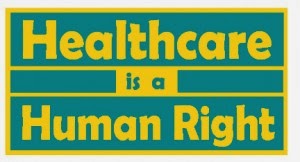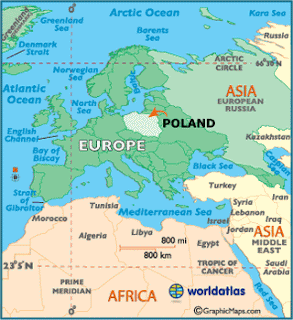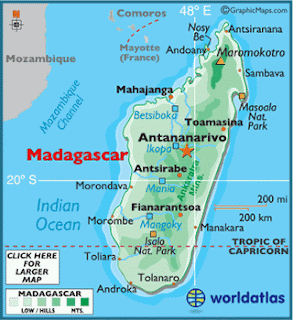
|
R
|
 alph Nader is
an American political activist, an author, lecturer, and attorney (b. Winsted, Connecticut, February 27, 1934). His areas
of concern: consumer protection, humanitarianism, environmentalism, and democratic government.
alph Nader is
an American political activist, an author, lecturer, and attorney (b. Winsted, Connecticut, February 27, 1934). His areas
of concern: consumer protection, humanitarianism, environmentalism, and democratic government. - In the United States, under Obamacare, 31 million Americans will still be uninsured by 2023 and millions more will remain underinsured.
- In the United States, Obamacare will do little to curb insurance industry profits and will actually enhance insurance industry profits.
- In the United States, under Obamacare, much still depends on your job or income. Lose your job or lose your income, and you might lose your existing health insurance or have to settle for lesser coverage.
- In the United States, under Obamacare, for tens of millions of Americans, health care coverage stays with you for as long as you can afford your share.
- In the United States, under Obamacare, the in-network list of places where you can get treated is shrinking – thus restricting freedom of choice – and if you want to go out of network, you pay for it.
- In the United States, under Obamacare, for thousands of Americans, it is pay or die – if you can’t pay, you die. That’s why many thousands will still die every year under Obamacare from lack of health insurance to get diagnosed and treated in time.
- In the United States, under Obamacare, hospital and doctor bills will still be terribly complex, making it impossible to discover the many costly overcharges.
- In the United States, under Obamacare, costs continue to skyrocket. The U.S. currently pays 18 percent of its GDP and still doesn’t cover tens of millions of people.
- In the United States, under Obamacare, health care driven bankruptcy will continue to plague Americans.
- In the United States, under Obamacare, complexity will lead to ratcheting up administrative costs and overhead.
 Number 11: In Canada, when you
go to a doctor or hospital, the first thing they ask you is: ‘What’s wrong?’
Number 11: In Canada, when you
go to a doctor or hospital, the first thing they ask you is: ‘What’s wrong?’ - In the United States, the first thing they ask you is: ‘What kind of insurance do you have?’
- In the United States, under Obamacare, Congress made it specifically illegal for the government to negotiate drug prices for volume purchases, so they remain unaffordable.
 Number 9: In Canada, the
government health care funds are not profitably diverted to the top one percent.
Number 9: In Canada, the
government health care funds are not profitably diverted to the top one percent. - In the United States, under Obamacare, health care funds will continue to flow to the top. In 2012, CEOs at six of the largest insurance companies in the U.S. received a total of $83.3 million in pay, plus benefits.
- In the United States, under Obamacare, the deductibles and co-pays will continue to be unaffordable for many millions of Americans.
- In the United States, Obamacare is divisive, with rich and poor in different systems and tens of millions left out or with sorely limited benefits.
- In the United States, under Obamacare, patients without health insurance or who are underinsured will continue to delay or forgo care and put their lives at risk.
- In the United States, under Obamacare, many thousands will continue to die every year due to lack of health insurance.
 Number 4: In Canada, an
increasing majority supports their health care system, which costs half as
much, per person, as in the United States. And in Canada, everyone is covered.
Number 4: In Canada, an
increasing majority supports their health care system, which costs half as
much, per person, as in the United States. And in Canada, everyone is covered. - In the United States, a majority – many for different reasons – oppose Obamacare.
- In the United States, under Obamacare, the poor pay a larger share of their income for health care than the affluent.
- In the United States, Obamacare’s 2,500 pages plus regulations (the Canadian Medicare Bill was 13 pages) is so complex that then Speaker of the House Nancy Pelosi said before passage ‘we have to pass the bill so that you can find out what is in it.’

- In the United States, the majority of citizens, physicians, and nurses prefer the Canadian type system – single-payer, free choice of doctor and hospital, everybody in, nobody out.
|
Unsafe at Any Speed. Grossman Publishers, 1965.
|
Action for a Change (with Donald Ross, Brett English, and
Joseph Highland). Penguin (Non-Classics); Rev. ed edition, 1973.
|
|
Whistle-Blowing (with Peter J. Petkas and Kate Blackwell).
Bantam Press, 1972.
|
Ralph Nader, Joel Seligman, and Mark Green. Taming the
Giant Corporation. Paperback ed. Norton, W. W. & Co., Inc., 1977.
|
|
Nader, Ralph, and John Abbotts. Menace of Atomic Energy.
Paperback ed. Norton, W.W. & Co., Inc.,. 1979.
|
You and Your Pension (with Kate Blackwell)
|
|
The Consumer and Corporate Accountability
|
In Pursuit of Justice
|
|
Corporate Power in America (with Mark Green) Penguin
Books, 1977.
|
Ralph Nader Congress Project
|
|
Ralph Nader Presents: A Citizen's Guide to Lobbying
|
Verdicts on Lawyers
|
|
Who's Poisoning America (with Ronald Brownstein and John
Richard)
|
The Big Boys (with William Taylor)
|
|
Nader, Ralph, and Wesley J. Smith. Winning the Insurance
Game: the Complete Consumer's Guide to Saving Money. Hardcover ed.
Knightsbridge Pub., 1990.
|
Nader, Ralph, and Clarence Ditlow. Lemon Book: Auto
Rights. 3rd ed. Asphodel Pr., 1990.
|
|
Nader, Ralph, and Wesley J. Smith. Collision Course: the
Truth About Airline Safety. 1st ed. McGraw-Hill Co., 1993.
|
"Children First! A Parent's Guide to Fighting
Corporate Predators" (with Linda Coco) Corporate Accountability Research
Group, 1996.
|
|
Nader, Ralph, and Wesley J. Smith. No Contest: Corporate
Lawyers and the Perversion of Justice in America. Hardcover ed. Random House
Pub. Group, 1996.
|
Canada Firsts (with Nadia Milleron and Duff Conacher)
|
|
The Frugal Shopper (with Wesley J. Smith. )
|
Getting the Best from Your Doctor (with Wesley J. Smith. )
|
|
Nader on Australia
|
Nader, Ralph. Cutting Corporate Welfare. Paperback ed.
Open Media, 2000.
|
|
The Ralph Nader Reader. Seven Stories Press, 2000. ISBN
1-58322-057-7
|
Crashing the Party, 2002. ISBN 0-312-28433-0 [1]
|
|
Civic Arousal Paperback ed. Harper Publishing, 2004. ISBN
0-06-079325-2
|
"It Happened in the Kitchen: Recipes for Food and
Thought"
|
|
"Why Women Pay More" (with Frances Cerra
Whittelsley)
|
Nader, Ralph. The Good Fight: Declare Your Independence
and Close the Democracy Gap. Paperback ed. Harper Collins Pub., 2004. ISBN
0-06-077955-1
|
|
"The Seventeen Traditions" Regan Books, 2007.
ISBN 0-06-123827-9
|
Citizen Power: A Mandate for Change by Mike Gravel, 2008.
Foreword by Ralph Nader.
|
|
Only the Super-Rich Can Save Us! Seven Stories Press,
2009. ISBN 1-58322-903-5
|
Getting Steamed to Overcome Corporatism Common Courage
Press, 2011.
|
|
The Seventeen Solutions: Bold Ideas for Our American
Future HarperCollins, 2012.
|
Told You So: The Big Book of Weekly Columns. Seven Stories
Press, 2013. ISBN 978-1-60980-474-9
|
|
http://en.wikipedia.org/wiki/Bibliography_of_Ralph_Nader
|
|
Bennett's books are available in New York State independent bookstores: Lift Bridge Bookshop: www.liftbridgebooks.com [Brockport, NY]; Sundance Books: http://www.sundancebooks.com/main.html [Geneseo, NY]; Mood Makers Books: www.moodmakersbooks.com [City of Rochester, NY]; Dog Ears Bookstore and Literary Arts Center: www.enlightenthedog.org/ [Buffalo, NY]; Burlingham Books – ‘Your Local Chapter’: http://burlinghambooks.com/ [Perry, NY 14530]; The Bookworm: http://www.eabookworm.com/ [East Aurora, NY] • See also: World Pulse: Global Issues through the eyes of Women: http://www.worldpulse.com/ http://www.worldpulse.com/pulsewire http://www.facebook.com/#!/bennetts2ndstudy
_____________________________________________






































